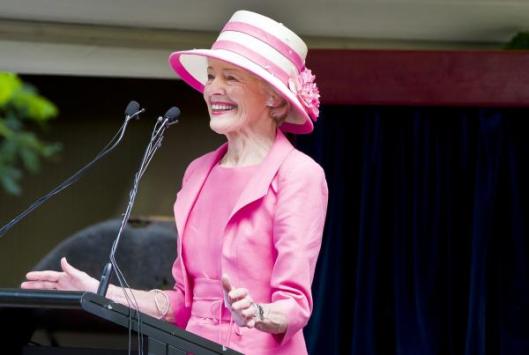Tags
Celtic names, english names, ethnonyms, famous namesakes, fictional namesakes, French names, Greek names, locational names, Luwian names, mythological names, name history, name meaning, names from television, saints names, Shakespearean names, surname names, UK name popularity, unisex names, US name popularity
Like everyone else, I watched in horror and disbelief as the news unfolded in Paris last week. A place where I had briefly lived as a student, my heart went out to my Parisian friends, and to all those in this beautiful but troubled city.
Abby from Appellation Mountain wrote how it sometimes feels almost wrong to write about baby names when the world is torn by tragedy. How can I keep blogging about celebrity babies, birth announcements, birth data, and so on in the face of human suffering?
Not only would it fail to help anyone if I gave up blogging, I believe it is our duty to continue our normal routine as much as possible during dark times. This goes for my own private tragedies as well, having lost a loved one just days before the Paris attacks.
Babies will keep being born, and named, and I will keep writing about it as my small effort towards hope and healing. As memorials all over Paris say – la vie continue. Life goes on.
Paris – The Legend
Before Paris was the name of a city, it was the name of a person. In Greek legend, Paris was a prince of Troy, infamous for starting the Trojan War by abducting the beautiful Helen away from the king of Sparta. There was plenty of warning, because before Paris was born, his mother was told in a dream that he would cause the downfall of Troy.
He was supposed to be killed to avoid this fate, but the king and queen were unable to do it, and handed the job over to their cowherd. Rather like the plot of Snow White, the cowherd reared him as his own, and Paris became an organiser of bull-fights (bulls fighting other bulls, not people).
He impressed the gods with his sporting honesty enough that he was asked to judge a beauty contest between Hera, Athena, and Aphrodite. Paris chose Aphrodite, and his prize was the most beautiful woman in the world, Helen. Aphrodite neglected to mention that Helen was already married, and that’s when all the trouble began.
The meaning of Paris‘ name isn’t known. It’s thought to be a Greek rendition of the Luwian name Pari-zitis, which has been found as the name of a scribe. The meaning of the first part isn’t understood, but the –zitis part means “man”.
Legend gives Paris the nickname of Alexander, meaning “defender of men” – he gained this while still a child, by saving his foster-father’s cattle from thieves. It’s tempting to wonder if Pari-zitis has a similar meaning to Alexander, such as “protecting man” or “guardian man”, and the Greek authors looked for a name which was a close equivalent.
The Greeks explained Paris’ name as being from the backpack that the cowherd brought him home in – the Greek word for the bag is pḗra. However, this is just folk etymology.
The Paris of legend is described as intelligent and extremely handsome, but he isn’t a very attractive character. He seduced another man’s wife, brought about the destruction of his homeland, and wasn’t a gallant or skilful warrior. Mind you, he was tricked by Aphrodite, and as he was doomed to die by his city you can’t blame him for his lack of patriotism, while being brought up by a cowherd would hardly equip him with courtly manners or battle skills. Nonetheless, he’s generally thought of as rather weak and selfish.
This did not stop people from naming their sons Paris, and there is even a Saint Paris listed as a 4th century bishop of Teano, near Naples. According to legend, he was born in Greece and performed that well known saintly show-stopper of killing a dragon. Another famous Paris was a 1st century actor in Rome who became enormously popular and influential. Unfortunately he followed the legendary Paris too closely by having an affair with the emperor’s wife: he was murdered, and the emperor killed anyone who mourned his death, and even someone who looked like Paris.
Paris is a Shakespearean name, as Count Paris is Juliet’s unwanted fiance in Romeo and Juliet. Handsome, wealthy, and well-connected, Paris is an eminently suitable husband, and little wonder Juliet’s parents are thrilled at this opportunity. Of course any audience member worth their salt is barracking for Juliet’s choice of romantic Romeo, and almost no one sheds a tear for poor Paris at the end.
Paris – The City
The place where Paris is today was settled by a Gaulish people called the Parisii – it is their tribe that the city is named for. The city’s original Latin name was Lutetia Parisiorum, which probably means “swamp or marshland of the Parisii”. The tribal name Parisii could be from the ancient Celtic word par, meaning “boat” – as the Parisii lived on the River Seine, it would make sense for them to be skilled in using boats. Other ideas are that their name means “commanders”, “”fighters”, “workers, artisans”, or “cauldron, kettle”. In other words, nobody really knows.
Interestingly, there was a British tribe with the similar name of the Parisi in Yorkshire. It is unclear whether there was any connection with the Parisii in Gaul, but there is just enough vague evidence to support it that it can’t be ruled out.
Situated between trade routes on land and water, the Parisii had a thriving town on one of the islands of the Seine. After being conquered by the Romans, Lutetia Parisiorum became a prosperous Roman city with a military camp on the island, but the main part of the city where the Left Bank is now. The city became known as Parisius, and in French, Paris.
Paris was claimed as their centre of operations by both the Frankish kings, and the first king of France (the islands were good for defence), and by the Middle Ages Paris was not only the capital of France, but the largest city in the western world. Now we know it as the City of Light, the City of Love; famous for art, fashion and food, its monuments become icons. A cultural centre which remains, even after tragedy, a beacon of light.
The city of Paris provided another inspiration for the name. It is generally felt that when Paris is a boy’s name it is after the legendary character, while girls called Paris are named after the city connected with romance and fashion. However, in practice it is not possible to be so cut-and-dried (the surname Paris makes it even more complicated).
Girls have been named Paris since at least the 18th century, and although Paris was already a fashion capital by then, the French Revolution may have been an inspiration for American parents in particular.
In the US, Paris has charted as a boys name on the Top 1000 intermittently since the late 19th century. Its longest continuous stretch was from 1979 to 2000, and its highest peak in the 20th century was in 1991 at #592. It hasn’t charted as a boys name this century, but last year 96 boys were named Paris in the US, with numbers continuing to fall.
Paris has been on the US Top 1000 as a girls name since 1985. It peaked in 2004 at #157 when socialite Paris Hilton was in the reality TV show, The Simple Life. Paris Hilton’s own name was just ahead of the curve, as she was born in 1981 – although the name Paris had been gradually rising for girls for some time. Incidentally, Paris Hilton was once engaged to a man named Paris – Greek shipping heir Paris Latsis. Currently the name Paris is #269 and relatively stable.
In the UK, Paris has charted for both sexes since the mid-1990s, peaking for boys and girls in 2004 during The Simple Life. At that point, it was #119 for girls, and #717 for boys. Currently it is #463 for girls, while last year just 3 baby boys in the UK were given the name Paris.
Paris has been a Top 100 name for girls in Australia and New Zealand, the only countries where the name has ever been popular. The name was on the Top 100 from 2002 to 2004, peaking in 2003 at #58 when The Simple Life was first on air. In New Zealand it peaked in that fateful year of 2004 at #35, making it the most Paris-loving place on earth. Currently Paris is around the 500s for girls in Australia, while it doesn’t chart for boys.
It is a strange fact that tragedy can help inspire baby names – I reflect on this knowing that the name Boston became more popular outside the US after the bombings at the Boston Marathon. Could an even larger set of terror attacks in another beloved city cause an uptick in the number of babies named Paris?
POLL RESULTS
As a boy’s name, Paris received an approval rating of 52%. 32% of people disliked it, and 11% loved it.
It did slightly better as a girl’s name, receiving an approval rating of 55%. 27% of people thought it was okay, while only 6% loved it.
(Photo of Paris street memorial from the BBC)










